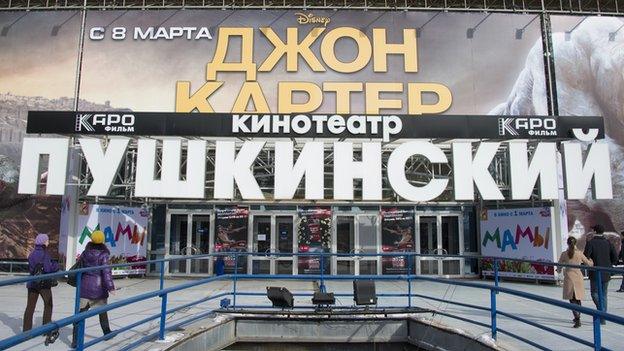Russian row over Wagner opera ban in Siberia
- Published
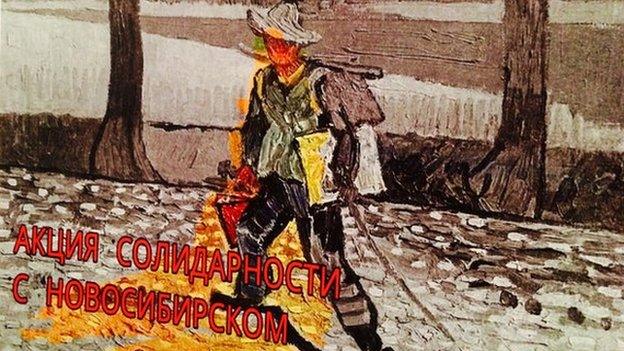
"Solidarity with Novosibirsk" says this poster featuring the wandering Tannhauser
The mood in the small auditorium was defiant as actors, poets and directors took turns at the microphone.
Spot-lit, they read extracts from classic works of Russian literature that were once banned.
"We lived with censorship for many years in Soviet times," explains Elena Gremina, director of Moscow's Teatr.doc drama project. It organised the performance to highlight work by poets including Anna Akhmatova and Osip Mandelstam who died in Stalin's Gulag camps.
"Now we're afraid that we are seeing censorship in post-Soviet Russia," the director adds, her hands full of "samizdat" - hand-written copies of once-forbidden works, that had belonged to her father. "It's a big danger."
Complaint
The reading was an act of solidarity with those experiencing a modern-day censorship scandal, in Siberia: the banning of a production of the Wagner opera Tannhauser for "offending religious believers".
Russian Orthodox activists had staged rallies against the production at the renowned Novosibirsk State Opera Theatre for several weeks.
They declared themselves offended by the depiction of Tannhauser as a film director working on an erotic film featuring Jesus Christ. The production also included an image of a crucified Christ between the legs of a naked woman.
It opened in December to full houses, but a local bishop later complained to prosecutors. The theatre manager and the opera's young director were then taken to court, accused of insulting religious feelings.
In mid-March the court rejected the complaint, finding no evidence of any offence.
'Blasphemous'
But two weeks later the theatre boss was summoned to the city airport by Russia's Culture Ministry and sacked.
His replacement Vladimir Kekhman - a former banana tycoon - immediately removed Tannhauser from the theatre's repertoire, describing the production as "blasphemous".
Last weekend, a large crowd came out in protest at the ban.
"This is just the latest in a long line of worrying developments," Stas Zakharkin told the BBC from Novosibirsk, where he organised the mass rally in front of the opera house.
In 2012 the same Orthodox activists had tried to get an exhibition of Picasso engravings in Novosibirsk banned for "perversion".
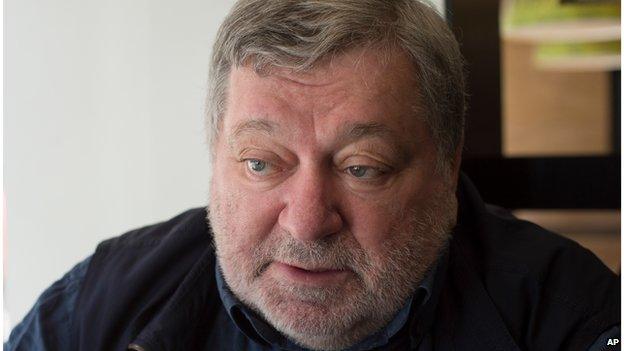
Russia's culture minister fired Boris Mezdrich (pictured) from his position in Novosibirsk
They also lobbied against concerts by American shock-rocker Marilyn Manson, among others.
'What next, book burning?'
Critics see their actions as a sign that Russian society is becoming increasingly conservative, heavily influenced by the newly powerful Orthodox Church.
More broadly, there is concern about a creeping return of censorship to the arts.
"It's the fact they could interfere with what happens at the state opera that's created such a reaction. If they can do that, then where does it stop?" Stas Zakharkin explained.
"It's not just theatre lovers, but rock musicians and artists who feel threatened," he said, pointing out that the protest rally brought more than 2,500 people onto the street from all walks of life.
Their slogans read: "What's next, book burning?" and "Dictatorship" - with the letters 't' in the form of an Orthodox cross.
The crowd adopted a resolution including a call for the controversial opera to be reinstated and for the law on "insulting the feelings of believers" to be amended, so that works of art are exempt.
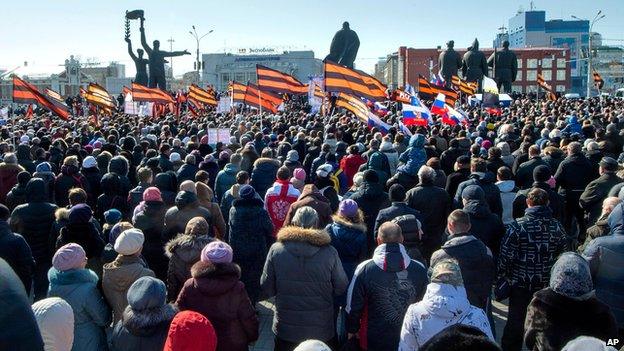
Novosibirsk has seen demonstrations both for and (here) against the Tannhauser production
The petition also calls for Culture Minister Vladimir Medinsky to be sacked.
'Show respect'
The ministry has given a robust defence of its actions, insisting that it gave theatre boss Boris Mezdrich every chance to apologise and to adapt the disputed production.
Novosibirsk opera house has provided this clip of its banned Wagner production
In a statement, the ministry described the director's refusal to do so as unacceptable for someone on a state salary, accusing him of "stubborn arrogance".
The Novosibirsk theatre "is not an experimental stage", the culture minister told Moskovsky Komsomolets newspaper.
"A federal, state academic theatre must show respect for the audience, society, the city," the minister stressed.
"He enjoys a perfect right to hire or fire someone," Kremlin spokesman Dmitry Peskov said, defending Mr Medinsky to the BBC.
"There is no place for any censorship, but there is a place for subordination. They should obey," he said, referring to the theatre management.
Boris Mezdrich told another Russian newspaper that he was proud he had stood his ground.
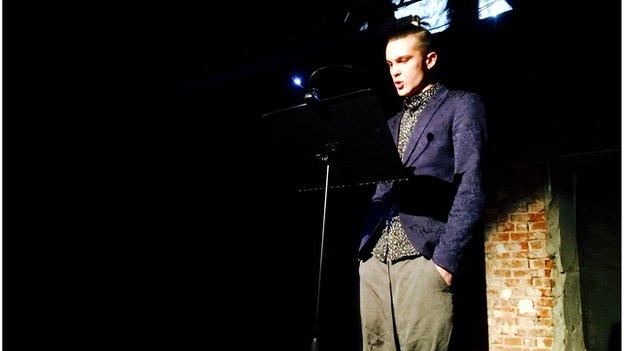
In Moscow, the works of formerly banned writers were read as a demonstration against censorship
Numerous well-known personalities from Russian cultural life have spoken out in his defence, including Oscar-nominated film director Andrei Zvyagintsev, who sent a recorded message to Sunday's demonstration.
And at Moscow's Teatr.doc - which has had its own run-in with the culture ministry - there was unanimous condemnation of the director's removal.
"If we don't protest, then we will have a precedent," warned playwright Mikhail Durnenkov. "People from the street can go to any theatre and cancel a show."
Others highlighted a law last year banning swearing on stage and screen as a first step towards "taming" the arts.
"We're all worried about what's happened," says actress Oksana Mysina.
"For those of us who began our professional lives during [Gorbachev's] perestroika, this is ridiculous. It is fantastically bad. We don't want to live in this situation," she added, concerned that the opera ban in Siberia could mark the start of a trend.
"That's why we can't sit at home," the actress stressed.
"We want to talk about this. For it to stop."
- Published6 June 2014
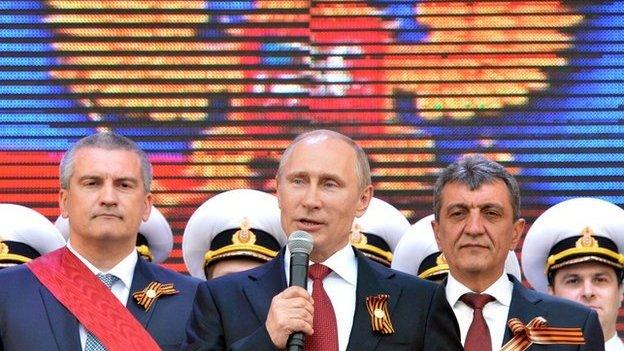
- Published5 May 2014
